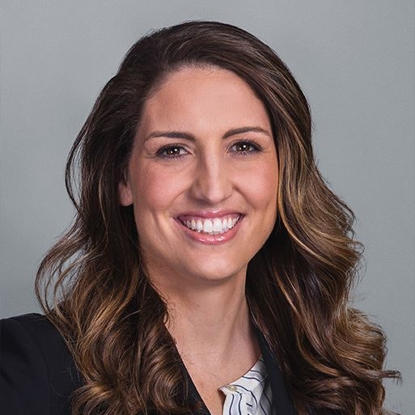
Florida Divorce Mediation Lawyers
Don’t Drag Your Divorce Out – Call Our Divorce Mediators in Florida
Mediation brings both parties together with a neutral third party to reach an agreement. The mediator, usually an attorney, must remain unbiased and cannot advocate for either party. Because of this impartial approach, certified mediators are effective at resolving issues common in family law cases.
At the Virga Law Firm, P.A., our divorce mediation attorneys in Florida support clients both inside and outside the courtroom.
To speak with our experienced Florida divorce mediation lawyers, call us at (800) 822-5170 or contact us online today.
What Is Divorce Mediation in Florida?
Mediation is a form of alternative dispute resolution used in a private setting before a case is filed in court. During the process, a third party helps the involved participants define issues and create customized plans to resolve them. The role of a divorce mediation attorney in Florida includes reviewing each party's goals and developing proposals to encourage agreement and minimize disputes.
Florida courts often require divorcing couples to use mediation, especially for contested family matters. This process helps reduce long legal battles and allows both sides to negotiate in a confidential, structured format. Many counties across Florida, including those in the Panhandle and Central Florida, treat mediation as a standard step before scheduling divorce trials. Courts in cities like Orlando, Panama City, and Pensacola frequently recommend mediation to help families work through disagreements outside of a courtroom. Attorneys who know Florida’s family law landscape can help clients navigate these steps with confidence.
While mediation has similarities to negotiation, its formal rules and the presence of a neutral mediator create a structured and open environment for communication. The process often leads to more satisfactory outcomes, as people feel heard and more willing to follow the agreements. Mediation can be more cost-effective, saving families money and reducing the emotional strain that drawn-out court cases bring.
Florida statute guides the mediator’s actions to ensure appropriate conduct. In family law matters, the mediator is required to:
- Remain neutral.
- Restrain from forcing any agreement.
- Conduct mediation with primacy on the mutual good of both parties.
The mediator must keep the negotiation confidential. By listening to both parties, the mediator aims to create a workable plan. Typically, both sides compromise. Successful mediation often means both sides make concessions.
Negotiation during mediation can result in settlements that avoid full litigation. Our team works with mediators to clarify your goals and pursue a beneficial agreement. With our background, we help you make the most of what mediation offers.
If mediation ends in agreement, a few final steps complete the process. Everyone signs the required documents for court review. A Florida judge ensures the agreement meets legal requirements before granting a final judgment.
Divorce Mediation Vs. Litigation: Understanding the Differences
- Divorce Mediation – Mediation helps divorcing couples negotiate agreements with the support of a mediator, who promotes healthy communication. The mediator may suggest ideas but cannot make decisions for them. Mediation often proves simpler, faster, less stressful, and more affordable than court litigation.
- Divorce Litigation – Litigation occurs in contested, high-tension divorces to settle serious conflicts. Litigated divorces tend to cost more due to trial expenses, delays, attorney fees, and related costs.
Knowing the distinction between mediation and litigation can shape your approach to divorce. A divorce mediation attorney in Florida supports collaboration and problem-solving, offering a confidential setting for solutions. Mediation empowers both parties to control the terms of their agreement. In contrast, litigation becomes necessary when disputes remain deeply rooted, but public court hearings often increase conflict and reduce privacy. The right approach depends on your divorce's specific circumstances.
The Benefits of Choosing Mediation Over Litigation in Florida
Mediation and litigation can both resolve a divorce, but many people find mediation to be less stressful and more effective. Mediation lets both parties determine outcomes tailored to their needs, resulting in mutually agreeable resolutions. With a neutral mediator, couples commonly resolve disputes while building better communication and experiencing less lingering hostility.
Florida courts recognize the advantages of mediation in promoting family stability during divorce. Judges may require mediation before a final hearing, keeping court dockets clear and helping families avoid drawn-out trials. Embracing mediation early can reduce delays and give couples more control over their timeline and the terms of their settlement.
Mediation often leads to a faster and more cost-effective solution. Choosing this route can lower overall expenses tied to long court battles. Florida courts encourage mediation to streamline legal proceedings, lighten the court workload, and promote healthier family relationships after divorce.
To help individuals understand, our attorneys have created a graph, which compares mediated and litigated divorce situations:
| Mediation | Litigation |
|---|---|
| In a mediated divorce situation, spouses determine the best interest of their child. | If parents cannot agree on custody issues, the court may determine a strict custody order, creating a possibility for a child to become unhappy or emotionally unstable. |
| The divorcing couple determines and controls the outcome of the divorce. | A judge or commissioner decides the outcome of the divorce situation. |
| Mediation is a confidential process that allows for a couple’s decisions to remain between the spouses and the third-party. Additionally, there are no filed declarations of accusations against one another. | All filed declarations of accusations are held in public records, meaning anyone can view these files at any time. |
| A mediator will help the divorcing couple negotiate a fair settlement. | Property division decisions may depend on the following: how aggressive a spouse’s attorney is, a judge’s opinion, prescribed court schedules, and which spouse is more aggressive. |
| Alimony, child support, and parenting plans are likely to be maintained when they are mutually decided. | Spouses may develop resentment towards one another, creating a lack of commitment for each spouse to follow court orders. |
| Mediation allows each spouse to maintain their dignity. In addition, mediation allows for divorcing partners to work together to reach a solution, creating a more positive and cordial outcome. | Litigation can cause spouses to grow hostile towards each other since much of the divorce may include arguments, declarations of accusations, and choices made by a court or judge. |
Using Mediation to Resolve Time-Sharing Disputes with a Divorce Mediation Attorney
Deciding on a time-sharing arrangement for your child can be one of the most challenging parts of a custody dispute. Many parents feel anxious about how decisions involving their child's schedule, care, and upbringing will be made, especially if the matter goes before a judge. Mediation provides an alternative that allows parents to shape the process, work together on a time-sharing plan, and reach agreements focusing on their child's best interests.
Florida counties have local requirements for parenting plans and time-sharing, often impacting the types of solutions considered in mediation. Rules may vary depending on the area, including specific considerations for school breaks or local events. By working with a divorce mediation attorney familiar with your Florida community’s guidelines, you increase your understanding of what the local judge may expect and can pursue an agreement that fits your family's needs.
Mediation in time-sharing disputes follows the same structured steps as other family law mediations but prioritizes resolving issues related to:
- Weekly and holiday schedules for parenting time.
- Transportation and exchanges between parents.
- Decision-making responsibilities for education, healthcare, and religious upbringing.
- Communication guidelines when the child is with the other parent.
During mediation, both parents work with a certified family law mediator, who remains neutral and facilitates discussion until a mutual agreement emerges. Mediation sessions are confidential, giving parents a safe environment to work through sensitive issues without fear of outside judgment. This setting often leads to open communication and creative solutions.
Below are a few benefits parents may find when using mediation to settle time-sharing disputes:
- More Control Over the Outcome – Parents, not a judge, set the terms of their time-sharing plan.
- Less Conflict and Stress – Mediation encourages cooperation and reduces tension found in litigation.
- Confidential Process – Unlike court, mediation keeps discussions private.
- Encourages a Healthy Co-Parenting Relationship – Working together in mediation lays the groundwork for positive future interactions between parents.
While mediation is flexible and collaborative, having an experienced divorce mediation lawyer in Florida ensures your parental rights remain protected and any agreement serves your child's best interests.
What to Expect During Your Mediation with a Divorce Mediation Lawyer in Florida
If you face divorce or a family law dispute, mediation may be one of the most meaningful steps in your case. Many people feel uneasy because they lack familiarity with the process. By understanding how mediation works, you set yourself up for smoother negotiations and fewer surprises.
Florida courts usually require mediation for contested family law cases. Most courts prefer that parties try to resolve issues on their own before going to trial. Some jurisdictions provide court-appointed mediators for family law matters, while others let families choose a private mediator with experience in family law. These local differences shape your experience, so learning about mediation options in your area sets the right expectations. Most mediation sessions take place in a neutral, comfortable setting—such as a law office or virtual conference room—free from courtroom pressure.
Choosing the right mediator matters. Both parties should feel that the mediator fosters a fair, open discussion. The mediator’s experience in family law and ability to encourage compromise influence how successful the process becomes.
Choosing a Mediator in Florida
A neutral mediator leads the discussions, helping both sides work toward a resolution. In Florida:
- The parties can agree on a private mediator.
- If the parties cannot agree, the court may appoint a mediator.
- The mediator does not make decisions but guides both sides toward a settlement.
Florida has specific requirements for family law mediators to maintain high standards. Mediators must complete a state-approved training program and continue learning about new legal issues and mediation trends. This ensures that mediators deliver quality services according to Florida Supreme Court guidelines and regional rules. When selecting a mediator, ask about their background, familiarity with local courts, and experience with complex cases. County norms can influence the style and structure of the mediation, so working with someone who knows those nuances gives your session a strong foundation.
Mediators often have backgrounds in law or psychology, equipping them to handle emotional discussions effectively. Their job is to stay neutral and help clarify each party’s goals, setting the stage for constructive talks. When you evaluate a mediator, consider how they handle similar cases and maintain balance during negotiations.
Costs & Time Limits for Mediation in Florida
- The cost of mediation depends on whether it is court-appointed or privately arranged.
- Under Florida law (Fla. Stat. § 44.108), mediation costs are based on the income of both parties to ensure affordability.
- Mediations are typically scheduled for three hours, but sessions may be extended as needed.
Some Florida counties offer subsidized mediation for families who qualify, with one or more sessions available at reduced rates. These programs often require proof of residency within the county or participation in court-referred sessions. Private mediation rates can differ based on regional cost-of-living. Some private mediators also offer evening or weekend times, which benefits busy families in cities such as Orlando or Panama City.
Mediation costs can vary, so discuss fees in advance with your mediator. Private mediators generally allow for more flexibility in scheduling and session format. This can be helpful for complex divorces or for clients who need a more personalized approach. Understanding these factors helps you make informed choices, and mediation can save a significant amount of time and stress compared to a lengthy court case.
The Mediation Process with a Divorce Mediation Attorney
Mediation usually happens in a private setting instead of a courtroom, offering a relaxed, collaborative environment. The process typically includes:
- Opening Statements – The mediator explains the process and guidelines.
- Private Sessions (Caucuses) – Each party may go to a separate room while the mediator moves between them to share offers and discuss issues.
- Negotiation and Compromise – The mediator clarifies concerns, highlights shared interests, and suggests ways to bridge the gap.
You can take part in mediation at a law office or use a virtual conference room, depending on the local practice. Some Florida counties schedule in-person sessions to foster direct conversation; others offer remote mediation, especially for distant or busy parties. All sessions stay confidential regardless of where they occur. To support claims on topics like property or child support, parties may bring supporting documents. Your divorce mediation attorney in Florida prepares you for each step so you present your goals clearly throughout.
Mediation can be customized to fit the needs of your case. The initial statements explain the process, helping everyone understand mediation’s collaborative purpose. Private sessions let people speak freely and shape proposals without pressure from the other side. This strategy often leads to efficient, positive results that help maintain important relationships and minimize conflict when compared with traditional court hearings.
Your attorney will be present to guide you, protect your rights, and assist with negotiation. In some cases, families may invite financial advisors or relatives to mediation if both sides agree.
Conversations in mediation remain strictly confidential. Florida law does not allow anything said during mediation to enter court records. This rule supports open communication and encourages families to consider settlement options without fear of negative outcomes later.
Possible Outcomes of Mediation in Florida
Mediation can result in three outcomes:
- Full Agreement – The participants resolve all disputed issues.
- Partial Agreement – Some issues settle, but others move forward to court.
- Impasse – No agreement is reached, and the dispute heads to litigation.
Judges in Florida review mediated agreements for completeness and compliance with local law before issuing a judgment. The court ensures the terms follow state requirements, especially for child support, property distribution, and parenting plans that protect the child's best interests under Florida law. When some issues remain unresolved, future litigation focuses only on those questions, helping courts and families save time and resources. This system allows families in regions like the Florida Panhandle to finish remaining legal tasks faster, given how busy court calendars can be.
If you reach an agreement, the terms appear in writing and everyone signs before the documents go to the court. If mediation fails, a judge will decide outstanding matters in court.
Mediation gives both sides the chance to clarify their position and learn from each discussion, creating better opportunities for resolution if litigation becomes necessary. Even narrow agreements can simplify future court hearings by focusing on the few remaining disputes, making mediation a valuable step in Florida’s divorce process.
Preparing for Mediation with a Florida Divorce Mediation Attorney
- Identify your goals and priorities ahead of time.
- Gather all relevant documents (financial records, parenting plans, etc.).
- Be open to compromise but know your non-negotiables.
- Trust your attorney’s guidance to navigate the process effectively.
Many Florida counties offer pre-mediation orientation or resources specific to their court’s requirements. Using these tools helps you prepare for every stage of your session. Local resources often specify which documents to bring and offer checklists matched to county procedures. By working with a divorce mediation attorney familiar with local court systems, you align your strategy with area-specific expectations. Preparing for mediation means more than organizing your paperwork—it involves understanding your county’s deadlines and procedures, which can vary between places like Shalimar, Orlando, or Panama City Beach.
Preparation matters. By knowing what you want and what matters most, you bring focus to the negotiation. When you prepare well, you improve your chances of achieving a result that matches your goals. Staying in regular contact with your attorney during this time provides support and helps fine-tune your strategy.
Advice from a Divorce Mediation Lawyer
Certified Family Law Mediators complete focused training and mentorship. They recognize that clients want to resolve their family law issues efficiently and with reduced conflict.
At The Virga Law Firm, P.A., our Florida divorce mediation lawyers understand how to guide negotiation and mediation to protect clients' interests. Our attorneys bring decades of legal experience, helping people prepare for the process and pursue fair solutions.
When you work with our team, you benefit from decades of legal experience along with insight into family courts across Florida. We serve individuals and families from the Panhandle through Central Florida, always keeping current with new laws, court rules, and best practices. Our attorneys provide strategies, communication tips, and information based on the trends of your region’s courts. Families appreciate our guidance not only about Florida law but also about the practical expectations of judges and mediators in their county. Because our firm serves several Florida regions, we are ready to help with both court-ordered and private mediation, always focusing on your well-being and peace of mind.
Working with a skilled mediator can speed up settlement, reducing stress and costs. Mediators help manage emotions and clarify difficult legal topics. Our team at The Virga Law Firm, P.A. supports clients throughout the process, making sure each step centers around your needs.
To speak with our experienced Florida divorce mediation lawyers, call us at (800) 822-5170 or contact us online today.
When Is Mediation Required in Florida Divorce Cases?
Florida law encourages mediation for family law matters, and courts typically require couples to attempt mediation before setting a final hearing in many divorce cases. This policy reduces court backlog and encourages people to work together to resolve disputes in a cooperative, cost-saving way. In counties like Orange, Bay, and Escambia, mediations often take place early to address parenting, finances, and division of property. When both spouses resolve all issues in mediation, the court may approve their agreement without holding a full trial, saving time and stress. Recognizing when courts require mediation and understanding county procedures can keep your divorce process on track.
For parents handling custody or time-sharing matters, Florida judges usually order mediation before trial. Even if a divorce is uncontested, mediation can help clarify the terms and allow everyone to propose solutions based on their family's situation. A local divorce mediation attorney can explain court schedules and requirements so you make the most of mediation and avoid unnecessary delays.
How Mediator Qualifications & Local Court Practices Affect Your Florida Divorce
Mediators in Florida must complete a training course approved by the Supreme Court of Florida, covering conflict resolution, family relationships, and ethical standards. To remain certified, mediators participate in continuing education and demonstrate strong decision-making and communication skills. Courts in different counties maintain lists of approved mediators and may apply their own rules about how mediators are appointed. In Orlando and Fort Walton Beach, for instance, court clerks might assign mediators from a local roster, or individuals may retain a mediator aware of county customs and court expectations.
A mediator familiar with your county’s court practices provides valuable insight during mediation. They know what local judges require in filings, deadlines, and orders. When you choose a divorce mediation attorney or mediator with knowledge of your local courts, you minimize confusion and improve the mediation process. Florida's diversity means each area can have different systems and timelines, making local experience key to a smoother resolution.
FAQs About Florida Divorce Mediation
Is Divorce Mediation Legally Binding in Florida?
In Florida, any agreement reached during divorce mediation is not automatically legally binding. However, once both parties sign the agreement and submit it to the court, a judge’s approval turns it into an enforceable order. This court review ensures the legal validity of all terms. To protect everyone’s interests, an attorney can draft or review the agreement before it goes to court.
How Long Does Divorce Mediation Typically Take in Florida?
The length of divorce mediation depends on how complex the issues are and how well the parties cooperate. Florida mediations are usually faster than court cases. Most mediation sessions last about three hours, but some disputes can settle in one meeting, while others require several sessions held over weeks or months. When couples act quickly, they often finish with less stress and uncertainty.
What Happens if We Cannot Reach an Agreement During Mediation?
If mediation does not lead to an agreement, neither party must accept the discussions. Mediation is voluntary and sets no legal duty unless both parties agree. The case then proceeds to court, where a judge decides outstanding questions. Mediation conversations remain confidential and cannot be used as court evidence, which encourages parties to negotiate without worry about trial repercussions.
Can Mediation Be Used for Visitation Rights?
Yes, mediation can help parents settle visitation disputes in Florida. Mediation gives families the chance to build visitation schedules suited to their needs, free from the court’s rigid rules. By working through mediation, parents can design plans that prioritize children and protect family involvement on both sides.
Is Mediation a Suitable Option If There Is a History of Conflict?
Mediation usually supports cooperative solutions, yet it can also work in cases with some history of conflict. The neutral setting of mediation means issues are aired constructively under a mediator’s supervision. Mediators are trained to handle difficult emotions and help parents or spouses look forward. If there is serious power imbalance or risk, alternative processes may ensure safety and fairness for all involved.
To speak with our experienced Florida divorce mediation lawyers, call us at (800) 822-5170 or contact us online today.

Our Core Values
Your Future, Our Commitment
-
The Client Comes First and All Else Will Follow
We take pride in delivering best-in-class client service and experience, understanding the privilege and responsibility we have when assisting clients and their families through legal matters. It is our highest obligation.
-
Authenticity and Transparency
We believe in being transparent about who we are, with ourselves, each other, and our clients and partners. This authenticity builds trust and fosters strong relationships.
-
Relentless Pursuit of the Win
We achieve stellar results by focusing on personal and professional performance and goals. Our relentless pursuit ensures we deliver exceptional outcomes for our clients.
-
Growth Mindset
We continuously learn, grow, and improve as individuals, as a law firm, and as advocates for our clients. We set and exceed both personal and professional goals to ensure ongoing development.
-
Ownership
We take responsibility for our work and actions, ensuring accountability in all that we do. Our commitment to ownership drives excellence and fosters a culture of trust and reliability.
-
Results Driven
We focus on outcomes and disregard the level of effort required. We have the vision and the discipline to do the work and face challenges to make our vision a reality for our clients.
-
Respect and Celebration for One Another
We support each other with kindness and respect, emphasizing a positive work culture and celebrating along the way. We respect our clients and support them through their challenges.
-
Unquestionable Integrity
We stand up for what’s right with consistently sound ethics and courageous honesty. Our integrity is the foundation of our practice and guides our actions and decisions.
-
We are in it Together
We are client and team-focused, committed to the firm’s vision, and act for the greater good. We carry our weight, bring others along, and act with civility, candor, and respect in all interactions.
-
Reputation
Reputation is everything. We strive to have the best personal and professional reputations. We want our reputation to precede us and for opposing counsel to know we are committed to fighting for our clients.
-
Community Stewardship
We embody the concept of giving back to the community. The Virga Law Firm is committed to supporting and improving the community through responsible and caring actions, setting an example of character.

Meet Your Attorneys
Compassionate Counsel, Relentless Representation.
-
 Gerard Virga Founding Attorney
Gerard Virga Founding Attorney -
 David Lohr Executive Director/Attorney
David Lohr Executive Director/Attorney -
 Chad Self Fort Walton Beach Managing Attorney
Chad Self Fort Walton Beach Managing Attorney -
 Taylor Tippel Panama City Beach Managing Attorney
Taylor Tippel Panama City Beach Managing Attorney -
 Christopher Melendez Attorney
Christopher Melendez Attorney -
 Tamar Solarin Attorney
Tamar Solarin Attorney -
 Amy Mizels Attorney
Amy Mizels Attorney -
 Lisa Lazan Attorney
Lisa Lazan Attorney -
 Danny Durnbaugh Chief Financial Officer
Danny Durnbaugh Chief Financial Officer -
 Connie Brake Senior Paralegal
Connie Brake Senior Paralegal










.png)